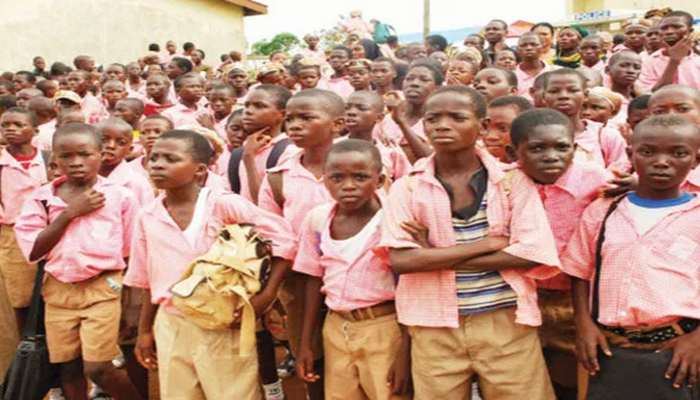
A Professor of Educational Management, Sidikat Ijaiya, has cautioned the Federal Government to ensure that proper assessment of all schools was done before reopening the institutions.
She said this should be completed ahead resumption of students to schools to prevent the schools from becoming epicentres of the COVID-19 pandemic.
Ijaiye, a former Deputy Vice-Chancellor, Academics, University of Ilorin, gave advice in an interview with newsmen in Ilorin on Wednesday.
She said there should be caution in ensuring teachers don’t turn to frontline staff and victims without protection against coronavirus.
According to the don, in spite of the fear, something has to be done for schools to resume.
She explained that it would be of great significance to reopen the educational institutions.
“If you destroy education, you destroy humanity.
“So, it is time for all well-meaning Nigerians to speak up on the side of education, especially to assist the government on possible strategies to adopt in the reopening of schools without an upsurge in the spread of the pandemic.
“In Nigeria, the challenges of our public schools are worrisome already without the COVID-19 pandemic; from overcrowded classrooms to poor sitting arrangement, stuffy classrooms, poor infrastructure, poor hygiene, shortage of classrooms and teachers.
“There are classes with 50 to 150 students, especially in big towns and cities.
“Pupils are sitting on mats and bare floors in some schools. How do we manage that in the face of the pandemic,” she said.
The expert in education observed that the Presidential Task Force (PTF) had come up with the desire to gradually reopen schools.
“Even though there is no date yet and the trend of the new spread does not look favourable, now is the time for Nigerians to speak up because it affects all of us,” the don emphasised.
According to her, a number of private schools have tried online lessons for their pupils, which had worked mainly because the parents are city-dwellers with internet facilities and are able to assist their children.
Such online lessons, she said, were not possible for public schools and illiterate parents, as well as for rural dwellers.
“In any case, online lessons cannot take the place of face-to-face teaching in the education of young citizens, so, it is inevitable,” she said.
She, however, said it was high time ministries of education, schools, parents, the public and teachers’ unions assist the government on suggestions of possible best ways of reopening schools in Nigeria.
The educationist also advised the federal government that among possible strategies to consider along the line of staggered/gradual approach, as suggested by the PTF, was starting with SS3 students due for public examinations.
She said that ministries of education might need to call for accurate data on number of students/pupils per class to determine the sitting arrangement in the face of social distancing.
“It would also help to determine whether there is a need for staggered classes, as per morning and afternoon shifts.
“Towards that end, each school, including the tertiary ones, can be mandated to prepare a draft of how they would manage social distancing and other aspects to prevent any spread of the pandemic,” she said.
Ijaiya said that before resumption, teachers should receive thorough orientation on COVID-19 to allay their fears and to take precaution seriously as well as for information on what to do if they suspect a case.
According to her, the first few days of resumption of students should be spent on the same orientation and that there should be no assumption that the students know all about COVID-19.
Ijaiya advised that State COVID-19 Committees would have to be actively involved in monitoring developments in schools and that there should be Sub-committees at the Local Government Area level for prompt action.
“This strategy would help to build parents’ confidence that their children and homes are safe from the pandemic.
“In addition, schools will need some palliatives, not just food: more good teachers, classrooms, chairs and desks, sanitisers, soap, regular water supply, facemasks, wash hand bowls, towels, clean toilets, etc.
“These are simple things that should normally be provided in schools. Large classes and schools have to be decongested,” she further advised. (NAN)






